You always have a choice! (Understanding responsibility/fault fallacy as you welcome 2019)

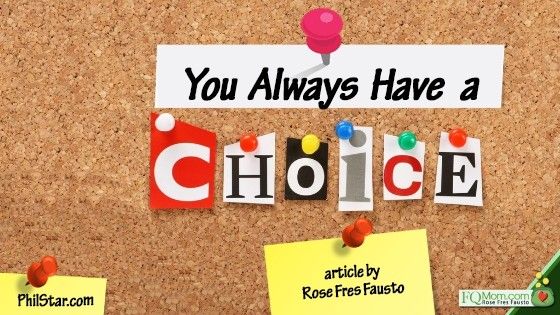
The five members of our family share one kindle account, enabling us to read (or listen to) the same book at the same time. Anton, my youngest son, recently purchased a book entitled "The Subtle Art of Not Giving a F*ck (a counterintuitive approach to living a good life)" by Mark Mason. I started listening to this audiobook then after I heard a gazillion F words, I decided I’ve had way too much of it and stopped.
When I told him about this, Anton said, “It’s a good book Ma, you just have to get past the first chapter and you’ll be fine.” It’s a good thing I heeded his advice because once I got to the second chapter, the mention of the F word became a lot less and bearable for me. ![]() In fact, a lot of his beliefs discussed in the book are principles we try to live by. Among which is what I’ve always told the boys since they were very young, “You always have a choice.” Mason expresses it as “You are always choosing” which is the title of an entire chapter.
In fact, a lot of his beliefs discussed in the book are principles we try to live by. Among which is what I’ve always told the boys since they were very young, “You always have a choice.” Mason expresses it as “You are always choosing” which is the title of an entire chapter.
Whether we acknowledge it or not, we are always responsible for everything in our life, no matter what the external circumstances are. Yes, we don’t always control what happens to us but we always control how we interpret and respond to what happens to us.
In order to make sense of this principle, let us discuss one aspect of that chapter which is the responsibility/fault fallacy.
Oftentimes, we don’t take action about something if we feel that we did not cause it, “Eh bakit ba ako ang kikilos, hindi ko naman kasalanan yan!” is a typical response we would hear or even say ourselves. If it’s not my fault, then it is not my responsibility to do something about it.
Suppose you were born poor. You didn’t have the best nourishment and education available to the kids your age. So since it was not your fault anyway, does that mean you are not responsible anymore about taking yourself out of poverty?
Take another example. You see someone being bullied and your stomach turns whenever you see this happen because it is very much against your values. But since you’re not the bully nor the one being bullied, is it not your responsibility to do something about it anymore?
Here’s another one. You know something about a widespread problem in your community. But you did not cause the problem, somebody else did. So is it your responsibility to help solve the problem or not?
The above are all examples of responsibility/fault fallacy. One way to think about the distinction of fault and responsibility is this: Fault is in the past. Responsibility is the present. Moreover, just because it’s not our fault doesn’t mean that it is not our responsibility anymore. However, we don’t have to unnecessarily burden ourselves with all the problems of the world because we are not fictional superheroes with superpowers who can jump from continent to continent solving problems left and right. We are finite and limited beings, so maybe we can filter the problems we take on by asking these questions:
- Will this directly affect me and our loved ones?
- Does this directly affect my core values?
- Do I have God-given gifts that can help solve the problem?
When we realize that we always have a choice, when we acknowledge and don’t fall victim to the responsibility/fault fallacy, maybe we can face our responsibilities more meaningfully and realize that this is where personal growth emerges.
I’m finishing this last article I will write for 2018 and the first one you will read in 2019 with this view shown below. In a few hours we will be having our Family Yearender/Goal Setting, an annual family tradition I recommend for all families. (Click Family Tradition to read more about it). I look forward to applying this principle more as I assess my 2018 and map out my 2019.
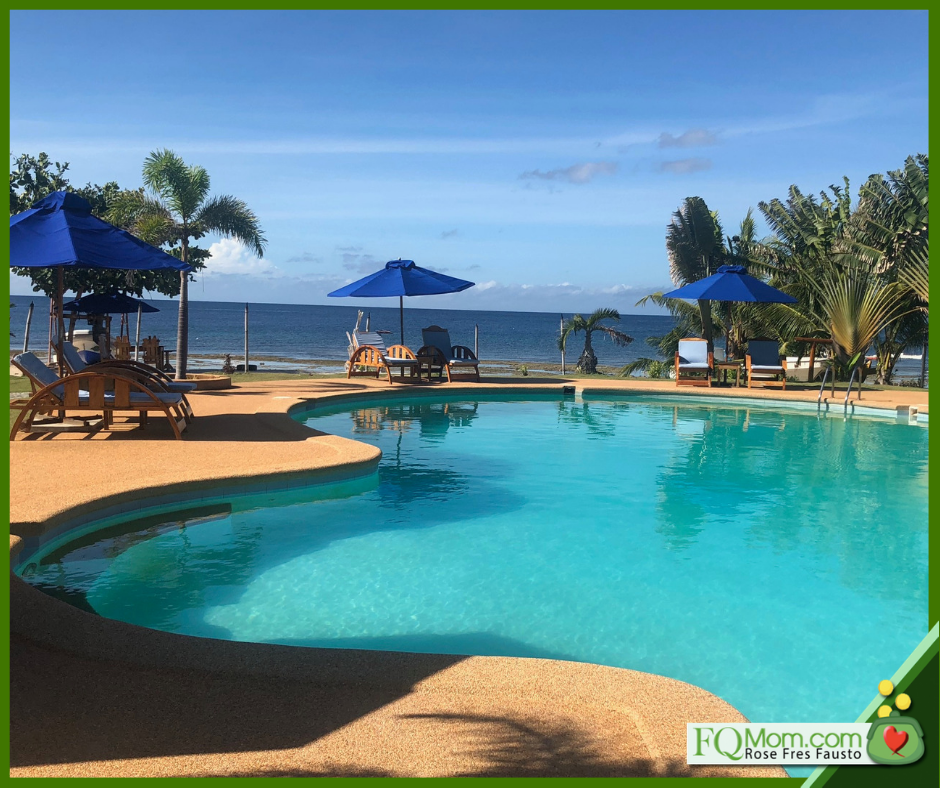
Salamangka Beach and Dive Resort, Siquijor
Happy New Year once again to my loyal readers who probably know me better than some of my so-called friends and family. ![]() Hey, if you’re free on Jan. 12, 2019 let’s meet up at 9 a.m. at PSE Tower 1 for some dialogue/sharing to help each other have a really great 2019. If you’re interested to join, email us at FQMomm@gmail.com and Gem.FQMom@gmail.com.
Hey, if you’re free on Jan. 12, 2019 let’s meet up at 9 a.m. at PSE Tower 1 for some dialogue/sharing to help each other have a really great 2019. If you’re interested to join, email us at FQMomm@gmail.com and Gem.FQMom@gmail.com. ![]()
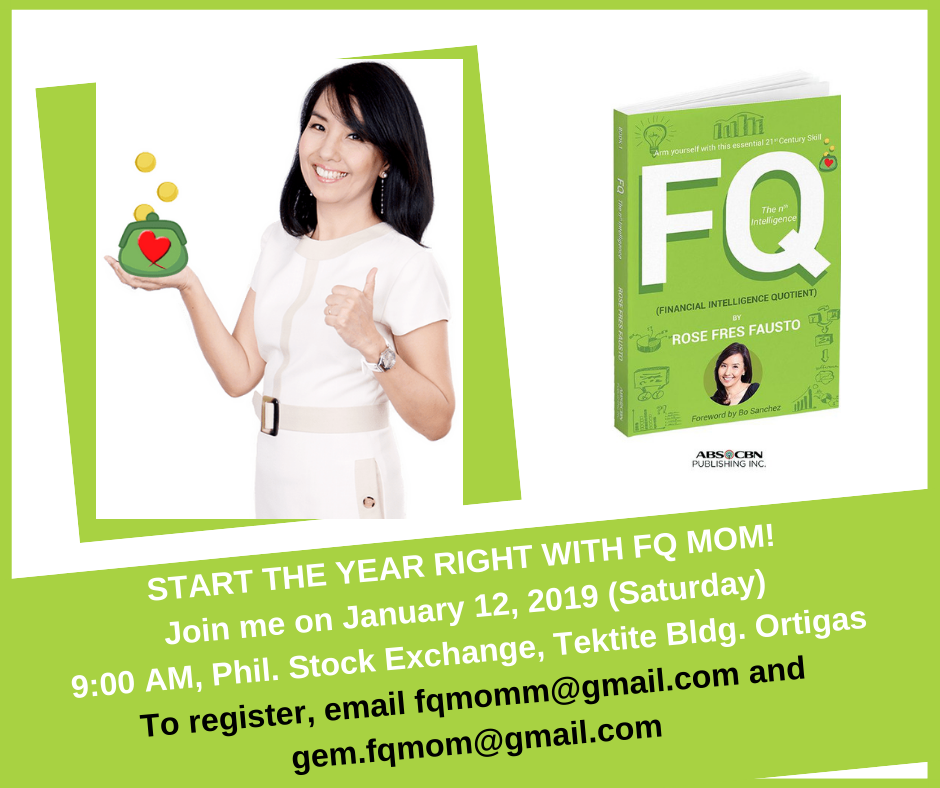
If you’re interested to join, email us at FQMomm@gmail.com and Gem.FQMom@gmail.com
*********************************
ANNOUNCEMENTS
1. Start 2019 the right way with the right FQ! I will be on ANC’s Early Edition with Migs Bustos on Jan. 3, 2019, 6:00 a.m.
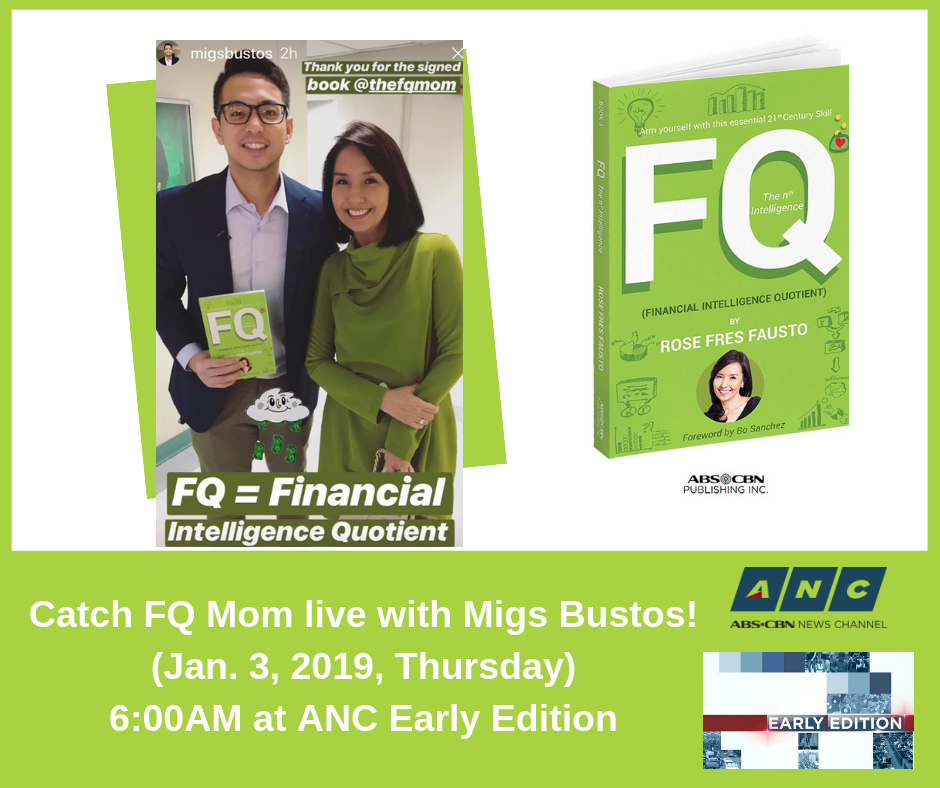
2. Thanks to those who already bought the FQ Book, especially to those who took the time out to send me their feedback. Your feedback is food for my soul. To those who have not gotten their copy yet, here’s a short preview of FQ: The nth Intelligence
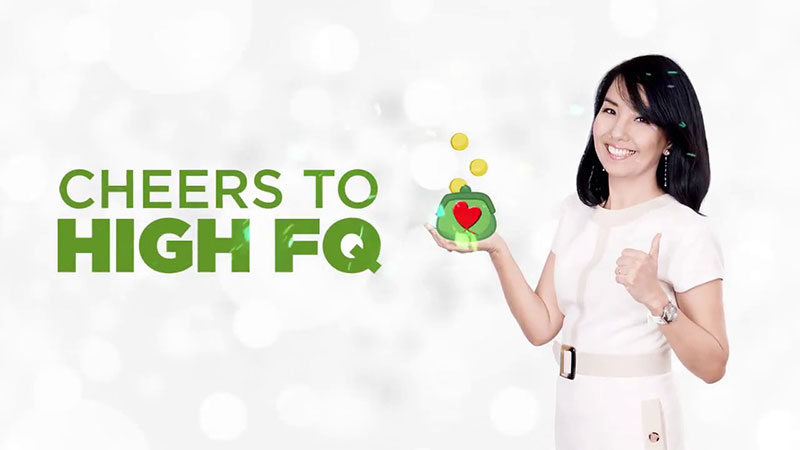
You may now purchase the book in major bookstores, or if you want autographed copies, please go to FQ Mom FB page (click SHOP), or FQMom.com (click BOOKS), or email us at FQMomm@gmail.com
3. Want to know where your FQ stands? Take the FQ Test Challenge now! Click link: http://rebrand.ly/FQTest
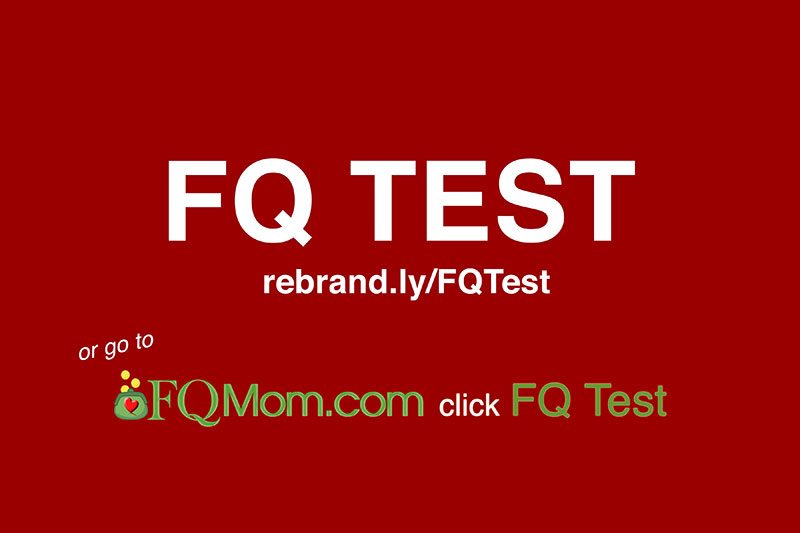
Rose Fres Fausto is a speaker and author of bestselling books "Raising Pinoy Boys" and "The Retelling of The Richest Man in Babylon" (English and Filipino versions). Click this link to read samples – Books of FQ Mom. She is a behavioral economist, a certified Gallup strengths coach and the grand prize winner of the first Sinag Financial Literacy Digital Journalism Awards. Follow her on Facebook & YouTube as FQ Mom, and Twitter & Instagram as theFQMom. Her latest book is "FQ: The nth Intelligence."



















